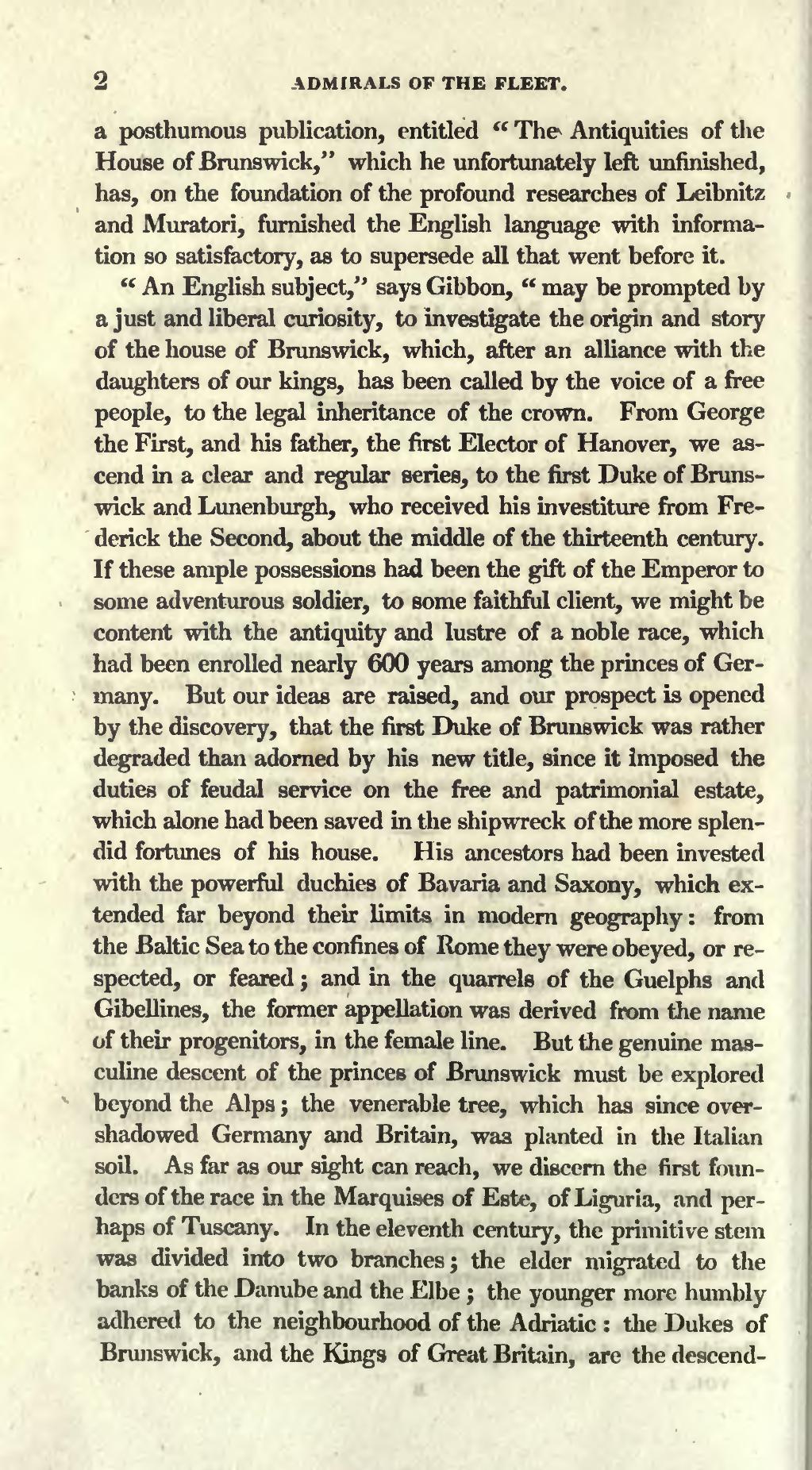a posthumous publication, entitled “The Antiquities of the House of Brunswick,” which he unfortunately left unfinished, has, on the foundation of the profound researches of Leibnitz and Muratori, furnished the English language with information so satisfactory, as to supersede all that went before it.
“An English subject,” says Gibbon, “may be prompted by a just and liberal curiosity, to investigate the origin and story of the house of Brunswick, which, after an alliance with the daughters of our kings, has been called by the voice of a free people, to the legal inheritance of the crown. From George the First, and his father, the first Elector of Hanover, we ascend in a clear and regular series, to the first Duke of Brunswick and Lunenburgh, who received his investiture from Frederick the Second, about the middle of the thirteenth century. If these ample possessions had been the gift of the Emperor to some adventurous soldier, to some faithful client, we might be content with the antiquity and lustre of a noble race, which had been enrolled nearly 600 years among the princes of Germany. But our ideas are raised, and our prospect is opened by the discovery, that the first Duke of Brunswick was rather degraded than adorned by his new title, since it imposed the duties of feudal service on the free and patrimonial estate, which alone had been saved in the shipwreck of the more splendid fortunes of his house. His ancestors had been invested with the powerful duchies of Bavaria and Saxony, which extended far beyond their limits in modern geography: from the Baltic Sea to the confines of Rome they were obeyed, or respected, or feared; and in the quarrels of the Guelphs and Gibellines, the former appellation was derived from the name of their progenitors, in the female line. But the genuine masculine descent of the princes of Brunswick must be explored beyond the Alps; the venerable tree, which has since overshadowed Germany and Britain, was planted in the Italian soil. As far as our sight can reach, we discern the first founders of the race in the Marquises of Este, of Liguria, and perhaps of Tuscany. In the eleventh century, the primitive stem was divided into two branches; the elder migrated to the banks of the Danube and the Elbe; the younger more humbly adhered to the neighbourhood of the Adriatic: the Dukes of Brunswick, and the Kings of Great Britain, are the descend-
